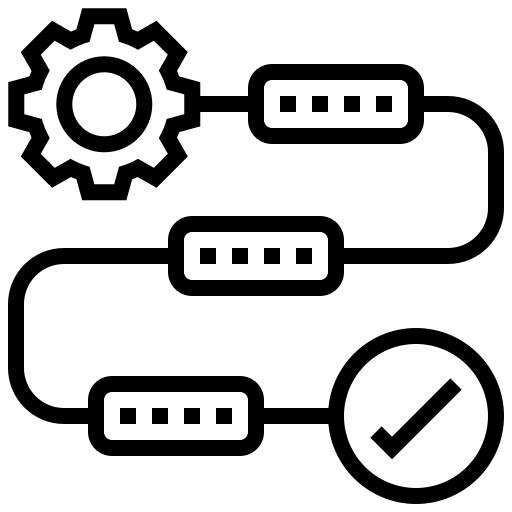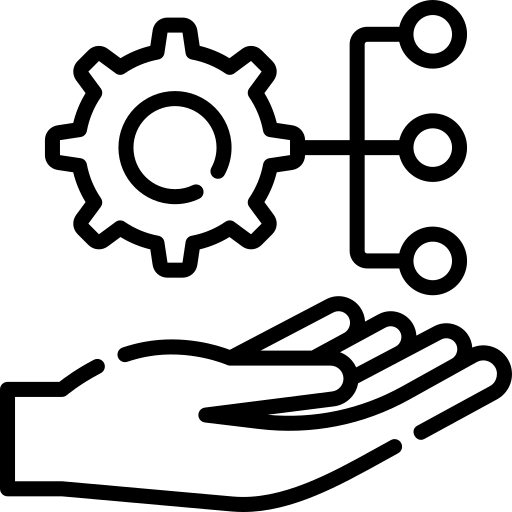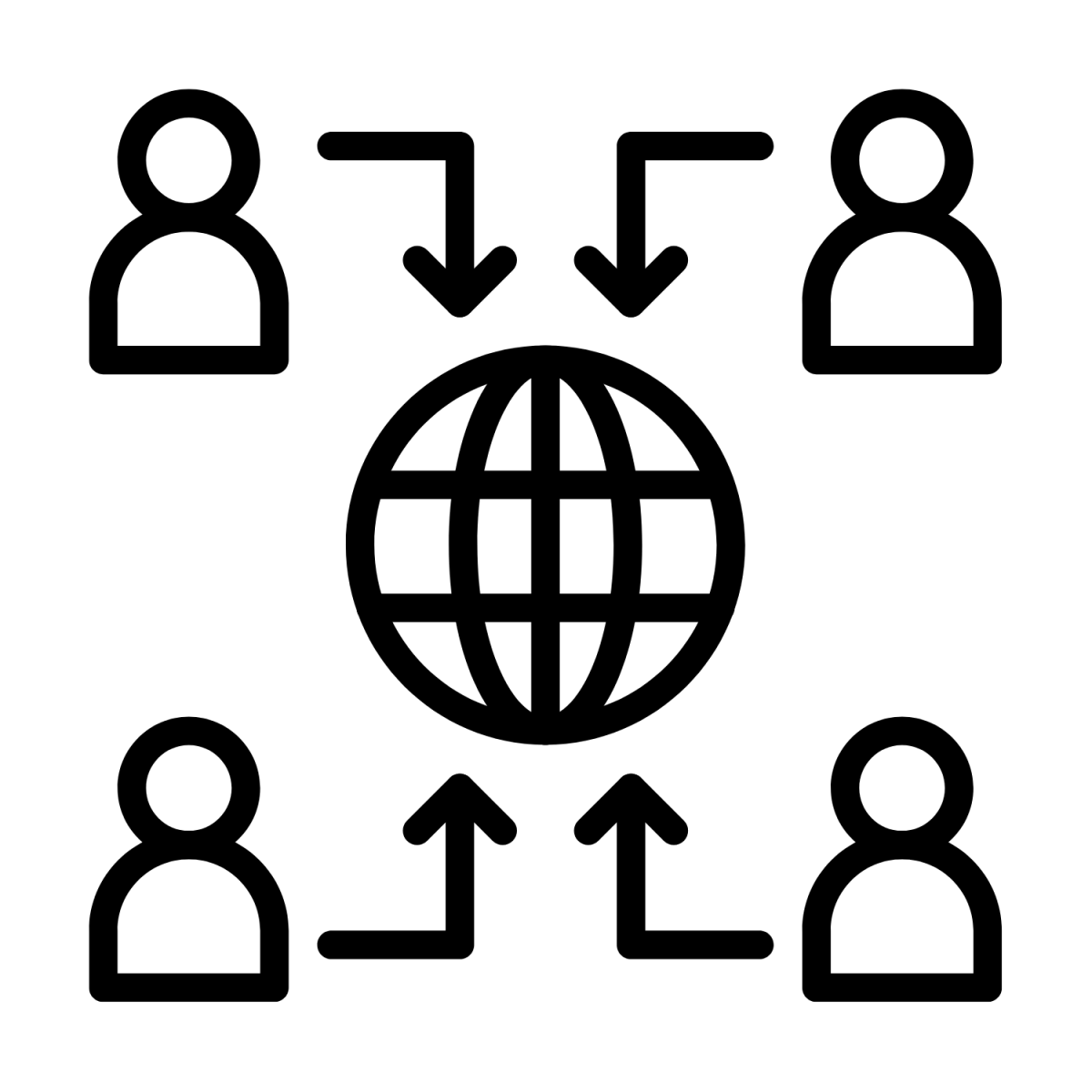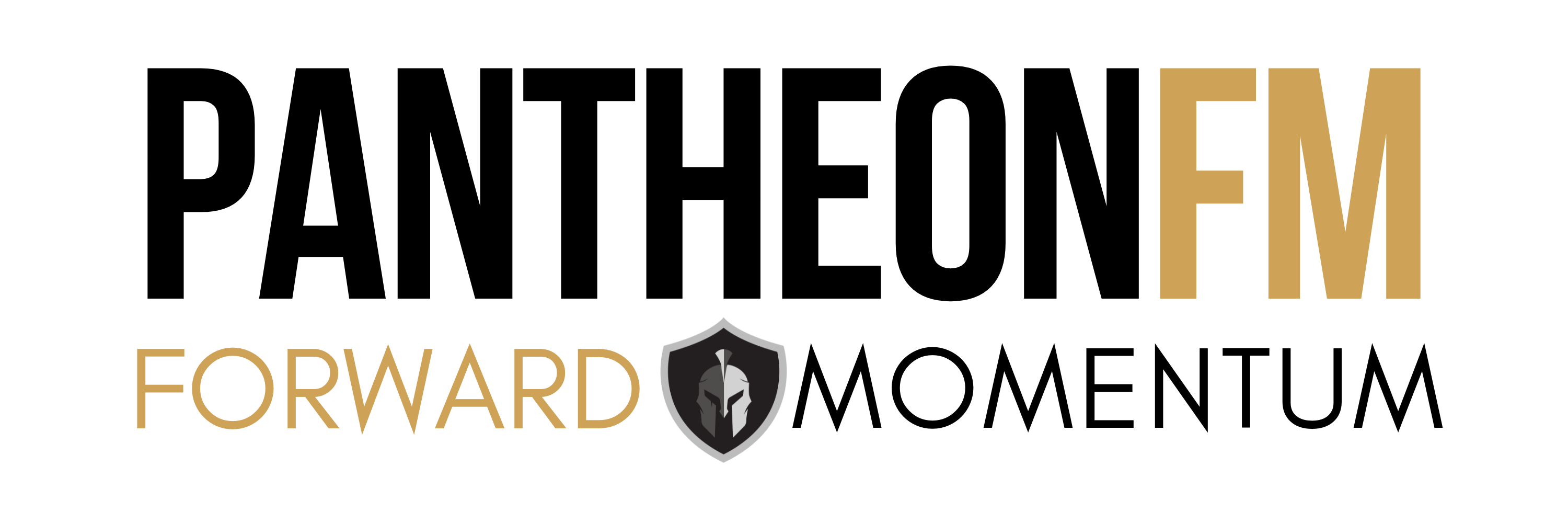Want To Get Paid As A Thought Leader?
MEET THE PANTHEON!
The World's Leading Community Of Entrepreneurs And World Changers
Get Started In Less Than 60 Seconds • Cancel Anytime
Learn More In The Video Below And Sign Up For Free Today!
What We Do For Entrepreneurs

The Pantheon Roadmap
With weekly training, courses, workshops, guest experts, and software tools, The Pantheon lays the path for any entrepreneur seeking to have fun, make money and make an impact on the world. We leave no man behind!

Virtual And In Person Events
The Pantheon is a gathering of entrepreneurs, so we would be remiss if we didn't at least gather together! We hold events with entrepreneurs from across the globe primarily to connect them with one another with some good old fashioned networking (with a Pantheon twist).

The Alliance And Beyond
Our inner circle mastermind, The Alliance, is where we gather in small curated groups each month to cross promote one another and to unite together to solve the world's biggest problems and to make a lot of money along the way!
Come Try Us Out Today!
The true value of The Pantheon can only be adequately expressed by experiencing it.
So why don't you come give us a test run today?
OUR MEMBERS SAY IT ALL!
50K IN MASTERMIND SALES
"I love everything Josh and the Pantheon team put out, but my favorite is the coaching program. I decided to take my agency and add a mastermind on the back end and it drastically increased my client retention and presented a whole new revenue stream for my company. $50k in mastermind sales later, I can’t recommend the pantheon enough."
-Sam Kabert
Landed My 1st 6 Figure Contract
"I love how intimate this group is. I’m leaving this with some huge connections and multiple interviews for my podcast. With the help of the pantheon I doubled my rates as a production specialist and landed my first 6 figure contract with their help (along with 2 others)."
-Seth Silvers
Earned an Additional $192,000
"Working with the pantheon has been an absolute pleasure. Josh and Kyle encouraged me to launch an intimate high ticket mastermind group for the users of my software podmatch. Within a few short months the mastermind group was full and I have an additional $192,000 per year coming through the door, and a true family in the podcast industry."
-Alex Sanfilippo
Landed A $1m Campaign
"I’m what you might call a 'late bloomer podcaster.' At 68 I launched my podcast, and now I consider myself a seasoned expert as I have entered the digital economy. Not only has my mindset leveled up, but I landed a $1 million capital campaign which will make me between $50k-$100k. Thank you, Pantheon!"
-Karl Dakin
Top 1% To $250k
"Having been a member of the Pantheon for over a year, my business has been transformed completely. I have grown my show to the top 1% of podcasts globally. Then I’ve been able to generate over $250k in revenue, and most importantly I’ve found my family. If you are on the fence, quit considering it and just DO IT!"
-Barrett Matthews
Now Offering $10k Product
"When I met Josh, he helped me gain the confidence I needed to be able to launch a program for my homeschooling program. I wouldn’t have ever dreamed of offering a $10,000 product, but with the help of the pantheon that’s exactly what I’m doing. I can’t believe the life I’m living."
-Melissa Jenkins
Leveled Up
"I received a surprise invitation to one of the Pantheon events and when I got around this group I realized that it was time to level up my ambitions. These people are changing the world and I want to be part of it. I can’t wait to be part of this group!"
-Rodney Waits
$500k In 6 Months
"One sentence. $500k in under 6 months through the Pantheon Method. If you are at all doubting whether this system will work for you, my question to you is, can you hop on a call and collect payment? I’m a data guy and these guys run off data and not assumptions. With all of this revenue, I’m launching a new program that will yield between $3-5 Million and you can bet that I’m going to use this system to fill it up!"
-Michael Buzinski
5 New Clients + Revenue Boost
"This group is transformative. I thought this was all about podcasting, but wow this is one of the best groups for generating business that I have ever been a part of. The people they bring are incredible givers. My business has brought in 5 new clients during my time with them resulting in over $100k in revenue."
-Hersh Rephun
A Fresh Start
"I am a very technical person having spent the past few decades as a director in one of the world’s largest aerospace companies. I have been so burnt out with this industry, but with a few simple trainings in the Pantheon I was able to structure my offer in a way that I can now sell my services for drastically more and this team has already helped me land 2 new consulting clients which have produced enough revenue to leave my position at this company and focus on what I truly want to do."
-Maria Aguirre
Serious New Business
"Josh first hired me as a sales consultant for his team and I fell in love with The Pantheon almost instantly. These people are the cream of the crop and the type of people I want in my circle. So now we have partnered with The Pantheon and we are doing serious amounts of new business every week. I can’t wait to see this group hit 1,000 amazing humans! PS. Josh helped me raise my rates and develop a lead system that has generated over $700k in sales in 6 months."
-Laura Wright
Top 1% In Under 3 Months
"I’ve spent many years in the entertainment industry and my podcast is so important to me. When I started with the pantheon they helped me go from the bottom of the charts to the top 1% in under 3 months and it absolutely blew me away. I’m so excited about what these guys are doing and the community they are curating."
-James O'Connor
More Value Than Anywhere Else
"Josh adds more value than anyone I’ve ever met. He is all about the long game and this shows not only in the way he speaks, but in the way he ACTS. His Pantheon Method program is built around this methodology and it reflects in the success of both myself and his other clients."
-Evan Money
High Ticket Contracts
"I came through Josh’s funnel and immediately fell in love with the process. Fast forward six months and I have landed multiple high ticket contracts using this method, and would recommend him to any high ticket service provider."
-Chala Dincoy
High Level Members
"Josh is so good at bringing together high level people! His mastermind and knowledge changed the way I do business, even after launching a 2 comma club award winning business."
-Michael Maitland
Don't Miss The Train
"I joined this group as a new entrepreneur and man the magic that comes out of this room is absolutely incredible. You won’t want to miss the train in this incredible group."
-Ryan West
My Perspective Opened
"I came to this program almost blind, because a friend of mine told me that this was the place to be. I feel like my network leveled up and I finally gained the confidence and clarity to launch my new business. My perspective has completely opened up."
-David Chametsky
This Group Is Family
"This group has become a true family for me. They are so great at working with me and helping me to align my skill and my passion with a price that reflects truly what I’m worth. Since joining the pantheon I’ve been able to launch a multi-six figure business doing an offer that I truly love"
-Tori Barker
Brought Me A Community
"I built an inc. 5000 company on my own and truthfully I’ve felt quite lonely and secluded, but this group brought me a community and a mastermind of people who are next level and helped me to scale my business to the next level. I will be part of the pantheon for many years to come."
-William Harris
The Greatest Masterminds
"It’s been an honor to be part of such an amazing group of entrepreneurs. The Pantheon accepted me with open arms even though I'm in a different industry that most of the others here. The masterminds we have are bar none the greatest masterminds I’ve been a part of."
-Chase Thornock
High Level Givers
"I have been so impressed how giving this group is. Even though many of them are at an extremely high level, they are willing to open their network to you in a way I’ve never seen. I’ve made lifelong friends and multiple business opportunities from this incredible group."
-Amanda Barrientes
True Clarity On Offer
"I built a multi-million dollar empire before I met the pantheon, and then they did something I never expected…they helped me to gain true clarity on how to promote my offers. This clarity has resulted in a drastic increase in our close rate and helped us to build an inbound referral network. This program is the best use of time that a business can ask for."
-Tasha Chen
6-Figure Coaching Clients
"These guys are the real deal! I wanted to make an authority play to establish my thought leader brand and these guys not only helped me break the top 1% with my podcast, but I made multiple sales of my 6-figure coaching program because of what we did with my podcast."
-Katie Richardson
Unexpected New Deals
"I pride myself in being very coachable. All I did was follow the pantheon method and I landed 7 new clients AND was offered a $100k deal that allowed me enter a whole new arena in my business with 2 more deals coming through the pipeline of that size. Wow! I’m here for life!"
-Kay Suthar
The Family I've Been Looking For
"I was invited last minute to come meet Josh and the rest of the pantheon in person, and within minutes I realized…This group is the family I have been looking for. I can’t believe I was guided to such a great group. I can’t wait for the many deals we will all do together!"
-Chelsea Telamantes
They Walk The Walk
"Most people talk the talk, but these guys walk the walk. Partnering with The Pantheon has been an extremely valuable experience for us. Our non-profit launched a podcast using their system and it has attracting dozens of new donors and allowed us to enter a whole new world of potential donors with larger budgets for giving."
-Jason Doherty
Finally Launched My Program
"Working with the pantheon method has been a roller coaster of emotions. Business can be extremely difficult, but this group has been so good to me and I’ve finally launched my program I've been working on for over a year. The support here has been amazing!"
-Kay Suthar
$100k+ In Sales
"When I started working with the Pantheon I felt that I was only ever selling to broke people, my time with the pantheon has allowed me to elevate my clientele and charge a much higher rate. I can track at least $100k in sales from my time with this incredible community."
-Amy Collette
$60k/yr Sponsorship
"I launched my podcast with Pantheon and within 3 months I became a top 1% podcast AND landed a sponsorship worth around $60k/year. So many sales have come through the door now, but what I can tell you is that this group sincerely cares about ever single client they work with, and I’ve routinely seen Josh step in as a friend with an individual client in a way that they haven't ever seen before."
-Jim Schubert
Brilliant Referral Process
"Working with Pantheon has allowed my show to pass the top 1% on iTunes and has produced dozens of relationships that developed into clients for our real estate fund. Well worth the time."
-Liam Leonard
A Blessing To Our Business
"I met Josh on his podcast about a year ago, right around the time where Covid knocked out the majority of our speaking opportunities. Josh helped me launch a new offer that has helped cover our expenses and fund our D3Day sports camps for kids with disabilities. This has been such a blessing to our business. Thank you Pantheon!"
-Doug Cornfield
Stepping Into My Brand
"When I left the world of News Anchoring I realized that it was time for me to step into my own brand and It has left me feeling so empowered. I finally know how I can be my best self and The Pantheon helped me to realize I can make so much more money than I ever imagined from my personal brand."
-Stephanie King Mattingly
20k New Listeners
"After jumping into the Pantheon and launching a retreat for my clients, I found my voice and have seen a huge bump in listenership to my podcast (over 20k/mo to be exact) and a bump in sales along the way. I am so bought in on this mission that i’ve decided to be a coach for the pantheon method. This group is one that is worth every moment of your time. Couldn’t ask for better people."
-Carly Thornock
Journey To $3m
"With the impending launch of my new book, the Pantheon helped connect me with the right partners to scale FAST and Josh helped me structure a coaching offer around my new business that will generate between 3-5 Million dollars and we have already filled our first seats. This group is the real deal!"
-Jenn Drummond
Model Training
"Josh is the Man! His group the pantheon are some of the most incredible people and they have been trained to refer like it’s going out of style. This model is one that I would recommend to every service provider."
-Scott Fergusen
Gained Vital Clarity
"When I met Josh and the Pantheon team, I realized that what I lacked for my new business venture was one thing…Clarity! I was crippled by opportunity and Josh helped me pick a lane and I’m launching a new program that we have filled the first seats for and has helped me land multiple stages with this new opportunity."
-Darin Kidd
Profitable Relationship
"Josh is one of my favorite people. His genuine personality and his experience in the referral game is unparalleled. We have a long standing partnership that has yielded me hundreds of thousands of dollars and a friendship that will last a lifetime."
-Chris Williams
Brilliant Referral Process
"The Pantheon is such an incredible system. Building a business entirely off referrals is brilliant and the best entrepreneurs I know build their companies this way, but the pantheon systematizes the referral process in a way that any dummy can do it! We landed a $50k client within our first week with The Pantheon and you can too. Just follow the system."
-Wes Wages
Support Every Step Of The Way
"I found a true friend in Josh and his team at the Pantheon. I’ve had a very successful career, but being someone of advanced age (82 years old) many people don’t take my business ambitions seriously, but these guys do and have supported me every step of the way. It’s my time to give back and they are giving me that opportunity."
-Lou Vickery
Landed My First $30k Client
"One session with The Pantheon helped me come to the realization that my offer was too broad. With some simplification I landed my first $30k client and I couldn’t be happier with this new offer as it maximizes my time and the results my clients receive from me."
-Morris Sims
They've Got Me For Life!
"I used to work for The Pantheon as a sales person and I fell in love with the process. I never thought I would be an entrepreneur selling high ticket services, but they got me! I’ve now stepped out and launched a new company using this system and landed my first client worth over $200k annually. Please do yourself a favor and join this incredible community and apply this system."
-Nate Wilde
Wow I Know What I Need To Do
"Meeting Josh was an amazing experience. His expertise in offer building blew me away. I've worked with some of the biggest names in the space (Tony Robbins, Dean Graciosi, Russ Rufino, etc.) And Josh's training on offer building gave me more clarity than years of employment in this space"
-Zac Palmer

